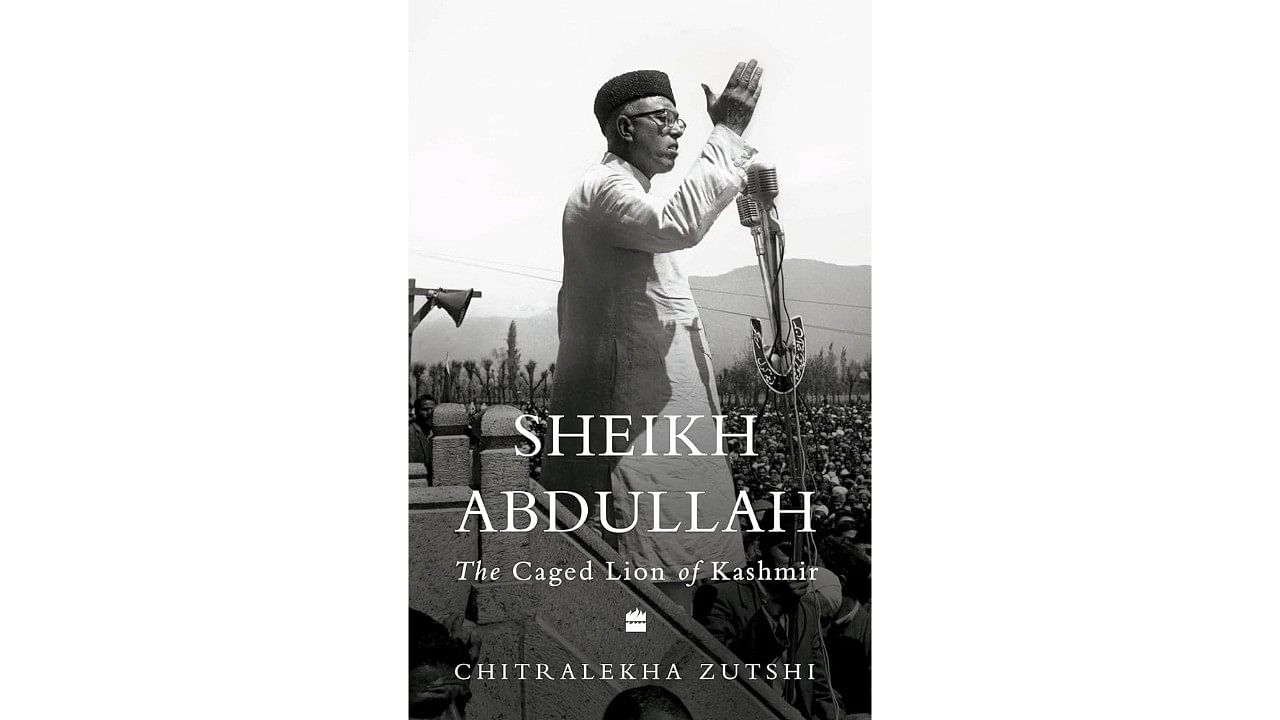
Sheikh Abdullah: The Caged Lion of Kashmir
By Muhammad Nadeem
In The Caged Lion of Kashmir: Sheikh Abdullah and the Politics of the State, Chitralekha Zutshi delivers a nuanced political biography of Sheikh Muhammad Abdullah (1905-1982), an influential yet controversial Kashmiri leader. Set against the backdrop of late colonial India, the chaos post-Partition, and Independence in 1947, Zutshi crafts a multifaceted portrait, transcending the oversimplified binaries that often cloud discussions on this pivotal figure. With an extensive range of primary sources in various languages, the book unveils fresh perspectives on Abdullah's Kashmir ambitions and the intricate tensions they ignited locally, nationally, and internationally throughout the twentieth century.
Zutshi contends that despite Abdullah's claim as a champion against external authorities, his unwavering belief in his charismatic leadership and sole jurisdiction over defining Kashmiri identity consistently undermined his stated objectives. His life encapsulates the struggles of a regional leader navigating the demands of his region versus the nation-state while grappling with tensions surrounding religion, nationalism, and personality amid Kashmir's tumultuous politics. The research not only delves into Abdullah's journey but also explores broader questions about center-state relations in early postcolonial India and the challenges of navigating regional, religious, and linguistic diversity within modern statehood in South Asia and beyond.
The book traces Sheikh Abdullah's political ascent as a charismatic leader in the 1930s, championing Kashmiri Muslims against the oppressive Hindu Dogra rule. Set within the broader anticolonial nationalist awakening in India and Kashmir, the author details Abdullah's humble beginnings and education, emphasizing his commitment to improving conditions for Kashmiris. Returning in 1930, Abdullah became a prominent figure through bold leadership during protests against offences against Islamic symbols in 1931. Exploiting religious sentiments and forming strategic alliances, he gained credibility as the 'Sher-i-Kashmir', a messianic figure destined to liberate the community. Despite rifts, Abdullah solidified his paramount leadership by 1932.
The study critically analyzes Abdullah's self-serving autobiography alongside a thorough exploration of contemporary news reports, memoirs, archives, and interviews. This diverse primary source base enables Zutshi to transcend partisan debates and Abdullah's constructed image, providing a nuanced evaluation of his choices, constraints, and contradictions within the broader context of local and national developments, encompassing anticolonial nationalism, religion, and sovereignty.
The author contends that 1935-1946 crucially shaped Sheikh Abdullah's political identity and the Kashmir nationalist movement. A central tension emerges between Abdullah's portrayal as a Muslim leader and a secular nationalist. Aligning with Congres's nationalism strained relations with Jammu Muslims, leading to support loss. Abdullah's attempts to regain ground, such as controlling religious sites, caused disillusionment among early supporters like Bazaz and Bandhu. The unresolved contradictions in Abdullah's identity, torn between Muslim leaders and secular nationalists, planted the seeds for J&K's eventual partition between India and Pakistan.
Her access to Nehru’s papers provides fresh insights into Abdullah’s 1953 dismissal and subsequent relations. She cross-examines diverse perspectives, highlighting silences and contradictions without indulging in speculation. While richer illustrative examples and more explicit ties to Abdullah could enhance the contextualization of regional and geostrategic contexts, the evidence is, on the whole, rigorously presented.
Zutshi broadens the source base, critically evaluates Abdullah’s self-narrative, and positions him in broader academic discussions on postcolonial regional leaders' challenges. She traces influences on Abdullah's intellectual growth and his efforts to solidify charismatic power. Though the intricacies of dynastic politics and NC factions pose challenges at times, she adeptly navigates the convoluted web of alliances and ideas shaping Abdullah's ascent and descent. The narrative unfolds across eight thematic chapters, centred around pivotal events in his career.
Without rigid theoretical impositions, Zutshi incorporates political anthropology concepts—charismatic routinization, social memory, and narrativity—alongside discussions of secularism, sovereignty, and postcolonial state-society relations. The resulting portrait exposes institutionally and ideologically mediated power exercises, coupled with the impact of personality, in the context of modern state formation in Kashmir and early postcolonial Indian politics.
The author's research and balanced analysis offer crucial insights into the dynamic interplay of individual agendas and diverse identities during the turbulence of South Asian decolonization. The study delivers three key contributions: a scholarly biography of Abdullah within the colonial and postcolonial history of Kashmir and India, challenging simplistic communal and nationalistic narratives. This contextual approach extends beyond Kashmir, revealing the contested path and tragic consequences of centre-state conflicts and the struggle to accommodate subnational identities within modern postcolonial states in South Asia and beyond.